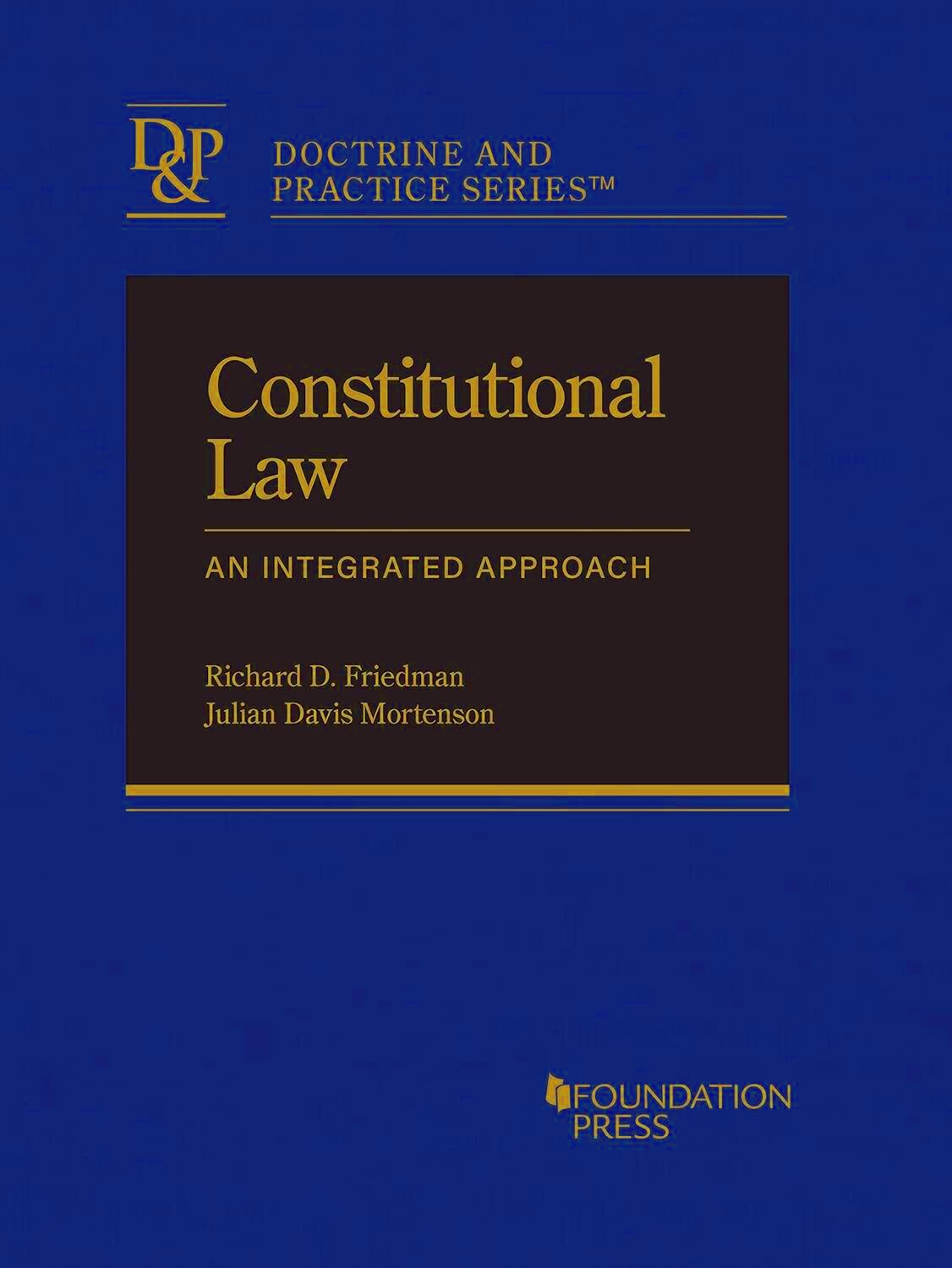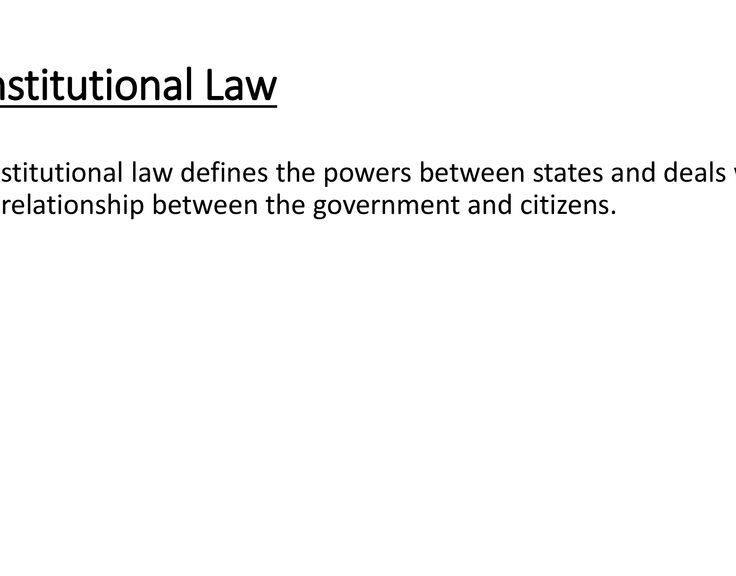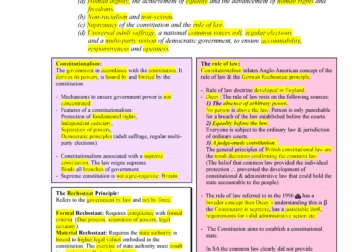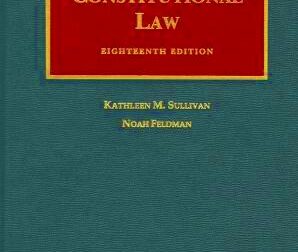An Integrated Approach to Constitutional Law: What It Means
Constitutional law serves as the core of a countrys legal system. Its akin to a houses foundation keeping everything intact and providing stability. Personally delving into constitutional law feels like uncovering the essence of how a nation is run. Its a realm where you witness the balance between rights and duties, as well as between power and liberty. This branch of law goes beyond ancient texts; it embodies principles that influence our day to day existence.
The Constitution goes beyond being a piece of paper; it embodies the values and principles we hold dear as a society. It outlines the workings of our government and safeguards individual rights. Exploring constitutional law helps us grasp the process behind creating, interpreting and enforcing laws. This understanding is essential for those who are passionate about promoting fairness and preserving democratic ideals.
Core Principles of Constitutional Law

Constitutional law revolves around key principles that influence a countrys functioning. These principles play a role in aspects ranging from the organization of government to the protection of individual liberties. Lets take a closer look at them.
- Supremacy of the Constitution: This principle asserts that the Constitution is the highest law of the land. No law or government action can contravene its provisions.
- Separation of Powers: This divides government into branches – legislative, executive, and judicial – each with distinct functions to prevent any one branch from gaining too much power.
- Checks and Balances: This ensures that each branch of government can limit the powers of the others, maintaining a balance and preventing abuse.
- Judicial Review: Courts have the authority to review laws and government actions to ensure they comply with the Constitution.
These core values serve as the foundation of constitutional law shaping all legal rulings and policies. They play a role in upholding a democratic community by ensuring that power is balanced and individual rights are safeguarded.
How Constitutional Law Shapes Government Powers
Constitutional law is crucial in determining the way government authority is wielded. It’s akin to a set of guidelines for a game making sure that all participants adhere to the rules. By means of constitutional law we establish limits on the exercise of power and safeguard personal liberties. Let me explain, how it works;
- Defining Government Structure: The Constitution outlines the structure of government, detailing how power is distributed among different branches and levels of government.
- Limiting Power: By setting clear limits on governmental authority, constitutional law prevents any branch or official from overstepping their bounds.
- Protecting Rights: It enshrines fundamental rights and freedoms, ensuring that government actions do not infringe upon these rights.
- Guiding Legislation: Legislative bodies must operate within the constraints set by the Constitution, ensuring that new laws align with constitutional principles.
Through my observations grasping these facets of law deepens our appreciation for the management and protection of power. Its an ongoing tightrope walk, crucial for upholding a fair and balanced community.
Individual Rights and Freedoms Under the Constitution
Think of our Constitution as a safeguard for personal freedoms and entitlements. Its role is to uphold the dignity and rights of individuals. In my view these rights go beyond being mere principles; they embody the core of liberty and fairness.
Here are some fundamental personal liberties and freedoms that are typically protected by constitutions.
- Freedom of Speech: This allows individuals to express their thoughts and opinions without fear of government censorship or retaliation. It’s a cornerstone of democratic societies and a vital component of personal expression.
- Right to Privacy: Protects individuals from unwarranted government intrusion into their personal lives. This right ensures that personal information remains confidential and secure.
- Right to Fair Trial: Guarantees that everyone is entitled to a fair and impartial trial, ensuring justice is served without bias or unfair treatment.
- Freedom of Religion: Allows individuals to practice their religion freely or choose not to practice any religion at all, without interference from the state.
- Right to Equality: Ensures that all individuals are treated equally before the law and protected from discrimination based on race, gender, or other personal characteristics.
These rights go beyond mere legal safeguards; they play a role in creating a fair and compassionate society. They guarantee that everyone can lead a life filled with respect and liberty. To me the Constitution serves as a commitment from the government to its citizens protecting their liberties and entitlements.
Key Cases That Define Constitutional Law
Constitutional law is greatly influenced by significant court rulings that help define and enforce its core principles. These rulings often serve as reference points for how laws are understood and for shaping societal policies. Looking back on these decisions I see a real time demonstration of how constitutional law evolves over time.
Here are some important cases that have had a significant and lasting influence.
- Marbury v. Madison (1803): This case established the principle of judicial review, allowing courts to declare laws unconstitutional. It’s a foundational case that set the stage for the balance of powers in government.
- Brown v. Board of Education (1954): This landmark decision declared racial segregation in public schools unconstitutional, a pivotal moment in the civil rights movement that reshaped American education and society.
- Roe v. Wade (1973): This controversial case recognized a woman’s constitutional right to privacy in matters of abortion, sparking ongoing debates about reproductive rights and personal freedoms.
- Obergefell v. Hodges (2015): This case legalized same-sex marriage nationwide, affirming the principle of equality and demonstrating how constitutional interpretation evolves to reflect societal changes.
These instances showcase the way constitutional law evolves and adjusts to shifting societal norms and challenges. Every ruling narrates a tale of how legal doctrines are enforced in practical situations, influencing the lives of countless individuals.
Challenges in Interpreting Constitutional Law
Understanding constitutional law can feel like piecing together a challenging jigsaw puzzle. Its not merely a matter of scanning text but grasping the nuances and significance behind the words. In my view this process of interpretation presents both a challenge and a creative expression.
Some common challenges include:
- Ambiguity in Language: Constitutional texts can be vague or open to multiple interpretations. Judges and legal experts often face the task of clarifying these ambiguities while staying true to the document’s spirit.
- Balancing Competing Interests: Interpretation often involves balancing individual rights against societal needs or government powers. Striking the right balance can be challenging, as different cases may present conflicting interests.
- Changing Social Contexts: The Constitution is a living document, and its interpretation must evolve with societal changes. Adapting old principles to new realities requires careful consideration and sometimes, difficult decisions.
- Judicial Bias: Interpretations can be influenced by the personal beliefs or biases of judges. Ensuring impartiality and consistency in applying constitutional principles is crucial but challenging.
These obstacles serve as a reminder of the ever changing nature of constitutional law. It involves an ongoing journey of understanding and adjustment that mirrors the constant interaction between legislation, societal norms and the workings of government.
The Future of Constitutional Law in a Changing Society
Constitutional law keeps pace with the changing times just like a river that shifts its path over the years. It mirrors the flow of societal advancements and obstacles. This transformation is not just a response to circumstances but a proactive adjustment to uphold the relevance and efficacy of justice in our constantly evolving world.
In the future there are several trends that are expected to influence the evolution of constitutional law.
- Technological Advancements: With rapid technological growth, issues such as data privacy, cyber rights, and digital freedom are becoming more prominent. The Constitution will need to address these emerging concerns, balancing innovation with personal rights.
- Globalization: As the world becomes more interconnected, constitutional law will increasingly intersect with international laws and human rights standards. This will require careful navigation to respect national sovereignty while upholding global principles.
- Social Justice Movements: The increasing focus on social justice and equality will likely drive changes in constitutional interpretations, aiming to address historical inequalities and broaden protections for marginalized groups.
- Environmental Concerns: With growing awareness of environmental issues, future constitutional amendments may include protections for environmental rights, reflecting the need to address climate change and sustainability.
In my view these patterns suggest that constitutional law will keep adapting to address emerging challenges while safeguarding core rights and liberties. Its a fluid realm that reflects the intricacies and hopes of society as a whole.
Practical Implications for Citizens and Legal Professionals
Grasping the intricacies of constitutional law holds significance for both individuals and those in the legal field. Its not solely focused on concepts but rather on the ways in which these concepts influence everyday life and the workings of the justice system. Here are some ways this plays out.
- For Citizens: Knowledge of constitutional rights helps individuals navigate legal situations more effectively. Whether it’s understanding one’s rights during an arrest or knowing how to address grievances against governmental actions, being informed empowers citizens.
- For Legal Professionals: Constitutional law forms the foundation of many legal arguments and strategies. Lawyers and judges must interpret constitutional provisions and precedents to ensure fair application of the law. They need to stay abreast of evolving interpretations and societal shifts to provide sound legal counsel and judgments.
- For Policymakers: Those involved in creating laws must consider constitutional principles to ensure new legislation aligns with constitutional mandates. This involves a careful balance between innovation and adherence to established rights and freedoms.
Based on what I’ve seen having a solid grasp of constitutional law empowers both people and professionals to maneuver through and impact the legal realm with finesse. It’s an amalgamation of insight, tactics and support that molds a fair community.
Frequently Asked Questions
When it comes to the law people tend to have a lot of questions. Here are some of the questions along with simple responses.
- What is the role of the Constitution in modern legal systems? The Constitution serves as the supreme law of the land, setting out the framework for government operations and protecting individual rights. It’s the ultimate guide for legal interpretation and application.
- How does constitutional law impact daily life? Constitutional law affects various aspects of daily life, from your freedom of speech and privacy rights to how laws are created and enforced. It ensures that government actions respect individual freedoms and rights.
- Can the Constitution be amended? Yes, the Constitution can be amended. This process typically requires a rigorous procedure involving approval by a significant majority of lawmakers or through a referendum. Amendments are made to address changing societal needs and values.
- What happens if a law conflicts with the Constitution? If a law conflicts with the Constitution, it can be challenged in court. Courts have the authority to review and potentially invalidate laws that do not comply with constitutional provisions.
These frequently asked questions address questions and interests related to constitutional law. Gaining insights into these matters sheds light on the relevance of constitutional principles across different situations shaping both the legal field and everyday life.
Conclusion
Constitutional law is an interesting and ever changing area that mirrors the fundamental beliefs and changing dynamics of society. It plays a role in protecting personal liberties and influencing the authority of governments making its influence significant and extensive. Grasping constitutional law goes beyond understanding concepts; it’s about recognizing how these concepts impact every facet of our existence. Whether you’re a citizen seeking to be informed about your rights or a legal expert dealing with matters the Constitution serves as your roadmap and protector. By remaining involved in its evolution we can uphold the ideals of justice and equity, in our constantly evolving world.


